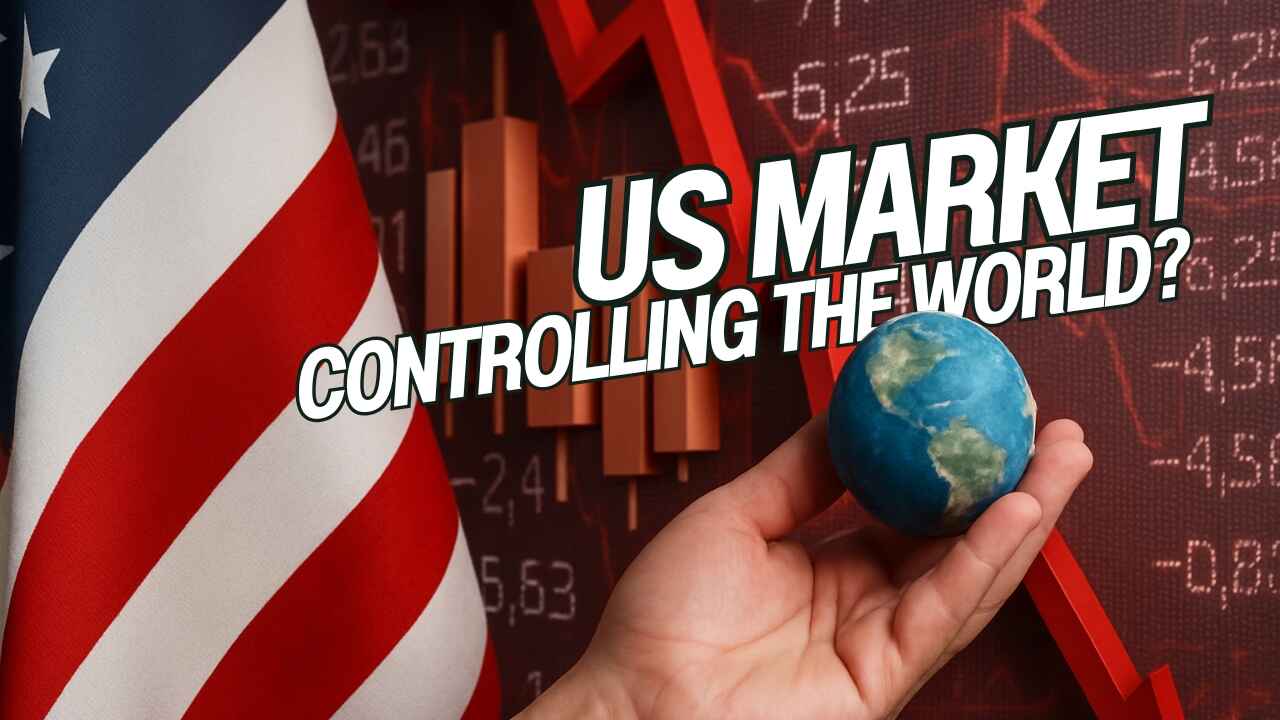1. The US Market: A Global Economic Superpower
The US market dominates the global economy – and this is because of its size, depth, and the strength of the financial system. Investors and business leaders around the world keep an eye on the movements of the United States market.
Stock Market: Markets like the NYSE and Nasdaq list the world’s largest companies – such as Amazon, Apple, and Microsoft. Their movements affect investors not just in the US, but around the world. The US market is a platform where people invest, companies grow, and economic trends are formed.
Bond Market: US Treasury bonds are considered the safest investment. Governments and institutions around the world keep their capital safe through the United States market.
GDP and Growth: As the world’s largest economy, when the US market grows, it affects the whole world. America’s technology, health and manufacturing sectors contribute significantly to this.
2. Investment opportunities in the US market
The United States market has options for investors of every level – be it stocks, bonds, real estate or new technology sectors.
Technology stocks: Companies like Google, Meta, NVIDIA are at the forefront of technology innovation. This makes the U.S. market one of the most attractive investment markets in the world.
Real estate: Real estate investment is very popular in cities like New York, Los Angeles and San Francisco. The performance of real estate is considered a mirror of the economic health of the U.S. market.
Bonds and alternative investments: People balance their portfolios by investing in government and corporate bonds. Similarly, investments like venture capital and cryptocurrency are also becoming increasingly popular in the U.S. market.
3. Role of Federal Reserve in US Market
The policies of the Federal Reserve directly affect the U.S. market.
Interest rates and monetary policy: If the Fed lowers interest rates, investment and spending increase. On the other hand, rising rates make borrowing more expensive – which can cool down the United States market.
Inflation control: The Fed’s goal is to keep inflation under control so that the purchasing power of the dollar remains intact and the U.S. market remains stable.
4. Global influence and trade relationships
The U.S. market is not just a domestic one, but an international hub.
Trade policy and tariffs: Changing trade agreements with China or Europe have a huge impact on the U.S. market. Agreements like the USMCA regulate trade between the United States, Canada and Mexico.
Foreign investment: Companies from around the world open or acquire businesses in the United States market to take advantage of America’s powerful economy.
Dollar dominance: Most of the world’s trading and investment is done in dollars, further strengthening the role of the U.S. market.
5. Challenges Affecting the US Market
Not everything that glitters is gold. The United States market also faces some serious challenges.
National debt: The US has a debt of more than $30 trillion. This could lead to future tax increases or spending cuts – which could slow down the US market.
Income inequality: The growing gap between the rich and the poor can lead to imbalance and instability in society, which could lead to policy changes.
Political uncertainty: Elections, tax rules, healthcare policies – all these directly affect the United States market.
6. Future of the U.S. Market
Changes in technology, sustainability, and global trade will determine the future of the U.S. market.
AI and innovation: U.S. market companies are at the forefront of artificial intelligence, clean energy, and biotechnology.
ESG and green investing: Investors are now looking not just at profits, but also at social responsibility. The United States market is moving rapidly in this direction.
New business world: Changes in the relationship between China and America will determine the strategies of the U.S. market in the coming years.
Ensuring Consumer Protection and Ethical Standards
The U.S. market has a responsibility to protect consumers by ensuring that businesses operate ethically and that consumers’ rights are respected.
Regulation and Oversight
Regulatory bodies such as the Federal Trade Commission (FTC) and the Securities and Exchange Commission (SEC) ensure that companies comply with laws related to fair competition, product safety, and transparent financial reporting. These regulations help prevent fraud, insider trading, and anti-competitive activities in the market.
Consumer Awareness and Protection
In addition to regulatory oversight, the US market also prioritizes awareness and education to protect the interests of consumers. Agencies such as the Consumer Financial Protection Bureau (CFPB) ensure that consumers understand their rights and are protected from exploitation in financial services, especially when it comes to deceptive or exploitative practices.
Conclusion:
The US market is the engine of not only the US economy but the entire world economy. Whether you are an experienced investor or a beginner – understanding the United States market is important. It provides you with capital appreciation, protection and global opportunities. With changing times, investors and traders who understand the direction of the United States market will stay ahead.
Read about: The Secret Origins of the US Stock Market History
If you are interested in Auto Mobile industry Visit: Auto Expo Hub

